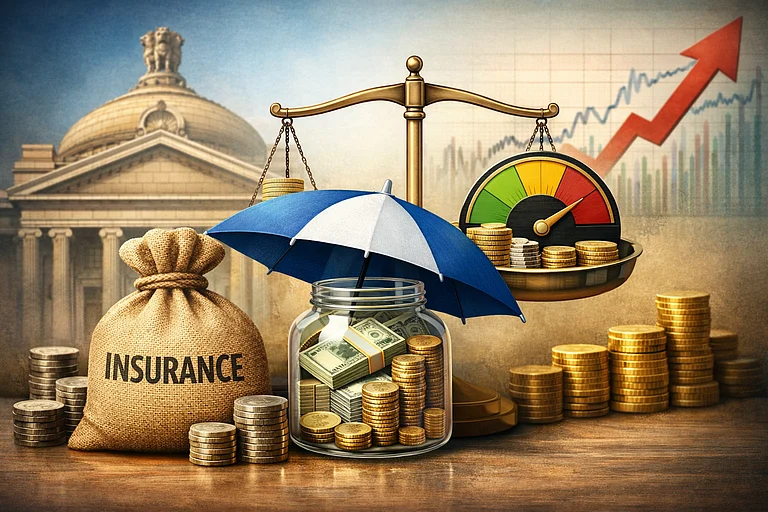Imagine a bustling crowd camping outside a high-end fashion boutique, eagerly anticipating the launch of the latest designer collection. This scene mirrors the marketing frenzy witnessed when Harry Potter's books took the world by storm two decades ago. Certain products go beyond mere functionality, be it a passing trend or a dedicated following.
The new couture line is nothing short of aspirational, with price tags ranging from Rs 50,000 to a staggering Rs 2,00,000. Recently, 35-year-old Nayanika Das, who is studying fashion designing in Paris, returned for a Durga puja vacation to Kolkata to her parents' place and bought a designer dress worth Rs 3 lakh from Sabyasachi, a luxury clothing line. Though she comes from a middle-class family, her training in the fashion field and exposure to the global arena have given her a keen understanding of clothing lines. As a result, she invests in outfits tailored for specific events that she would personally wear.
In today's world, securing a loan for luxury purchases is commonplace, whether for a designer wardrobe, a dream vacation, or a car. However, a crucial question emerges: Is it prudent to opt for equated monthly instalments (EMI) to acquire such aspirational items?
3 Things To Consider Before Buying Luxury Product
Let's explore the questions one should consider before making this financial decision.
1. Is It Within My Financial Means?
Before making a purchase, particularly for items classified as wants rather than needs, it's advisable to start by asking oneself this question. Following a general guideline, allocate 50 per cent of your after-tax income to cover necessary expenses, designate 30 per cent for personal indulgences or desires, and reserve the remaining 20 per cent for savings and investments to work towards your financial goals.
Based on the guideline mentioned earlier, if you earn Rs 50,000 after taxes each month, you can consider purchasing a luxury dress priced from Rs 15,000 to Rs 20,000. To comfortably afford a designer outfit priced at Rs 80,000, your monthly salary should be at least Rs 2.5 lakh.
Does that mean if your salary is less than that, you should not aim at buying branded, designer clothes priced at the range mentioned above? It's not that simple.
2. Essential Versus Nice-To-Have
Now, let's talk about that stylish dress. Ask yourself: Is it really necessary? If you bought a dress last year and it's still in great shape, you might not need a new one.
If you're a fashion designer, investing in the latest fashion materials or tools may make sense if it aligns with your work. In this case, it could be considered a 'need' rather than a 'want' in economic terms, allowing for some flexibility in your budget.
For many consumers, investing in a luxury designer dress is usually more of a desire than a necessity. One option is to consider purchasing materials and having a tailor create a dress with a personalized touch at a potentially lower cost.
3. What If I Opt For EMIs?
You can get aspirational products through various payment options like credit card EMIs, buy now, pay later, and more. While no-cost EMIs have no interest and a shorter six-month tenure, the monthly instalment would be higher.
Before taking a loan, check if what you want to buy is worth it and if you can afford it. If you don't have the money upfront, a loan is an option, but remember that the monthly payments (EMI) will affect your ability to save for other things. "A good thumb rule is to keep your total EMI under 30 per cent of your monthly income. For example, if you earn Rs 50,000 per month after taxes, make sure your EMI is less than Rs 15,000," says Abhishek Kumar, a Sebi RIA and founder and chief investment advisor of SahajMoney, a financial planning firm.
"Watch out for the conditions in the loan agreement which would reset the interest rate during the loan tenure. This is because if the interest rate goes up, the total interest payment and EMI would also go up and could make the EMI unaffordable," says Kumar. One should check the interest rate, processing fees, foreclosure charges or pre-payment penalties, consequences of defaulting on EMI, etc., before availing of the loan. Also, one should check the extra costs to be paid in case one needs to change the tenure or negotiate the interest rate.
Monthly instalments with extended periods and lower payments may incur interest, causing you to pay more than the product's actual cost. Financial experts always advise against taking a loan for a depreciating asset. If you choose EMI and miss payments, hefty penalties and a hit to your credit score may follow, potentially leading to a debt trap if not repaid promptly. In summary, the key is not to take on more financial commitment than you can handle.














